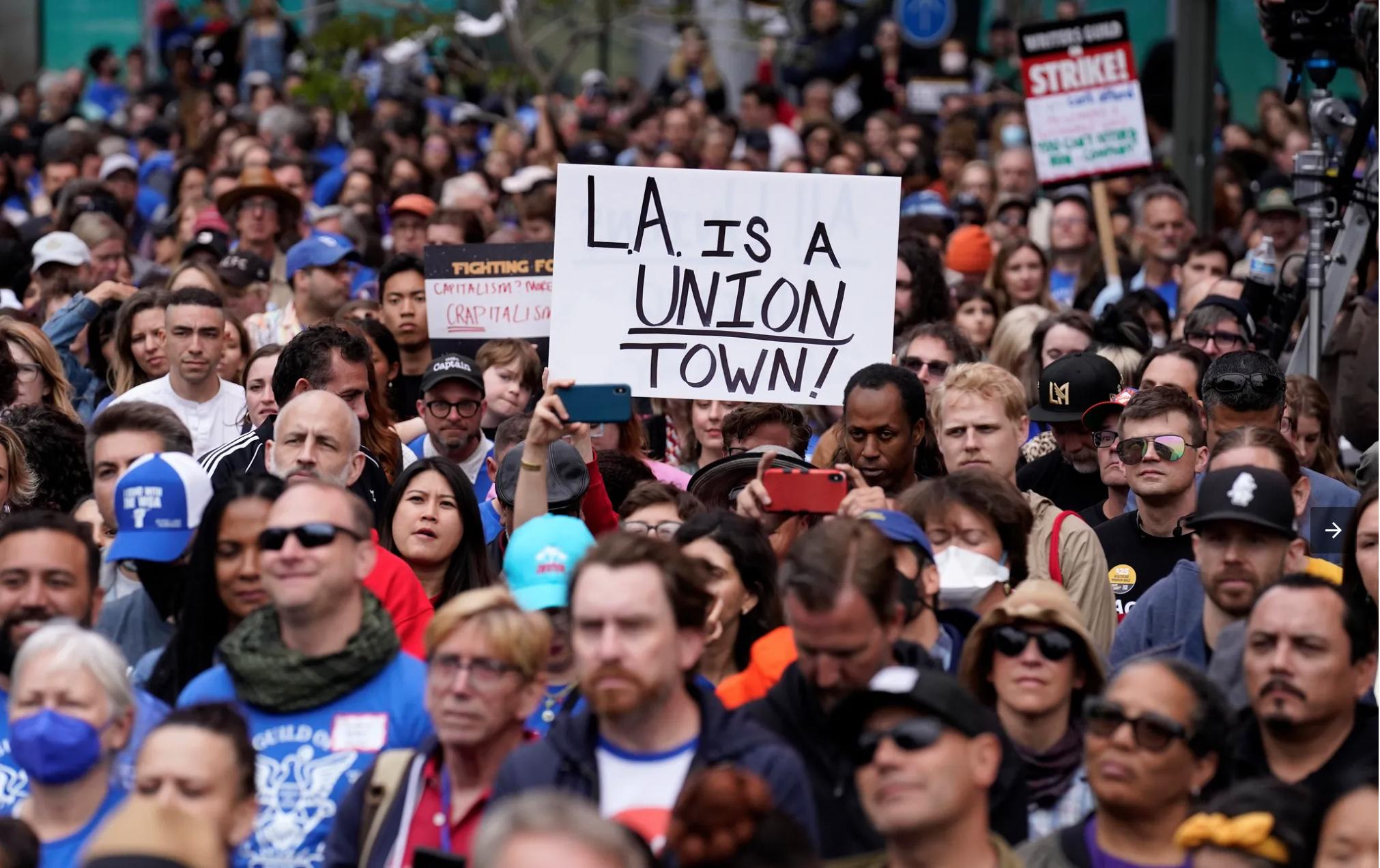
Will Ebeler is a student at Harvard Law School.
In this weekend’s news and commentary, the Directors Guild of America ratifies a new contract; a House Committee report accuses Temu of selling goods made with forced labor; and past evidence suggests New York City’s new delivery driver minimum wage will increase wages without increasing prices.
On Friday evening, the Directors Guild of America announced that its members had ratified a new contract with Hollywood television and movie studios. The three-year contract includes a 13% wage rise over three years; a new payment linked to the number of foreign subscribers on streaming platforms; restrictions on the use of AI; and new safety measures on sets. The deal was approved with the support of 87% of those voting. Meanwhile, the contract between the Screen Actors Guild and studios expires on June 30; actors have already voted to authorize a strike if the sides can’t reach an agreement by then. The deal comes during an ongoing strike by the Writers Guild of America. There is no end in sight to the Writers Guild strike, with no talks scheduled with studios. Writers Guild leaders have called the studios’ deal with directors part of a playbook to “divide and conquer.”
On Thursday, the House Select Committee on the Chinese Communist Party released a report that accused the shopping platform Temu of selling goods made with forced labor. According to the report, Temu and the fast-fashion retailer Shein sell directly to consumers and have no physical retail locations in the United States, and both companies allegedly use that business model to take advantage of a de minimis exception to import rules. The de minimis exception lets importers ship products into the US without customs duties if the value of the shipment is less than $800; and because the companies ship directly to consumers, almost all their products enter the country under the de minimis exception. This process lets Temu and Shein avoid customs duties; and it means their products are less likely to face scrutiny from customs inspectors. According to the Committee, the exception has allowed Temu to avoid compliance with the Uyghur Forced Labor Prevention Act (UFLPA). The UFLPA, passed in late 2021, seeks to ban the sale of goods produced in China using forced labor; it targets and bans most goods produced in the Xinjiang Uyghur Autonomous Region, where Uyghurs and other ethnic minorities have been detained and subjected to forced labor by the Chinese Communist Party. According to the Committee’s Thursday report, Temu has no compliance or auditing system to independently verify that its sellers are not sourcing products from Xinjiang and does not expressly prohibit vendors from selling products made in Xinjiang.
Finally, an article by Terri Gerstein of Harvard’s Center for Labor and a Just Economy highlighted New York City’s new $17.96 minimum wage for gig workers on food delivery platforms. As Iman reported earlier this month, the new minimum wage will help ensure a living wage for delivery workers after they pay for the various costs they bear as part of their work. Gerstein explains that until now delivery driers in New York City have been making roughly $7.09 per hour. And although DoorDash, for example, has claimed that the new rule is “deeply misguided” and likely to harm workers, past evidence suggests that is unlikely to happen. In 2019, the city passed a similar measure that targeted drivers for Uber and Lyft. A study conducted one year later found that driver pay had increased 9%; consumer prices had kept pace with prices in cities that had not set a minimum wage; and wait times for passengers had dropped. As Gerstein notes, the new minimum wage is likely to improve worker income without significantly increasing prices and without cutting the number of delivery workers.






Daily News & Commentary
Start your day with our roundup of the latest labor developments. See all
February 20
An analysis of the Board's decisions since regaining a quorum; 5th Circuit dissent criticizes Wright Line, Thryv.
February 19
Union membership increases slightly; Washington farmworker bill fails to make it out of committee; and unions in Argentina are on strike protesting President Milei’s labor reform bill.
February 18
A ruling against forced labor in CO prisons; business coalition lacks standing to challenge captive audience ban; labor unions to participate in rent strike in MN
February 17
San Francisco teachers’ strike ends; EEOC releases new guidance on telework; NFL must litigate discrimination and retaliation claims.
February 16
BLS releases jobs data; ILO hosts conference on child labor.
February 15
The Office of Personnel Management directs federal agencies to terminate their collective bargaining agreements, and Indian farmworkers engage in a one-day strike to protest a trade deal with the United States.